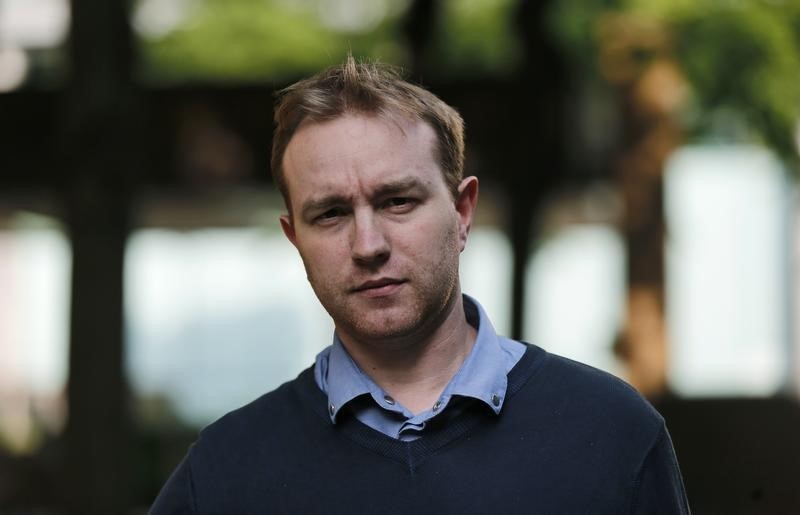By Anjuli Davies
LONDON (Reuters) - Tom Hayes, a former trader on trial in London on Libor-rigging charges, said he must have been either stupid or untroubled by his business practices because he left reams of evidence, according to documents presented to the court on Thursday.
In the first trial of an individual accused of benchmark interest rate manipulation, the court heard that Hayes was obsessed by Libor, the London interbank offered rate - a benchmark for around $450 trillion (288 trillion pounds) of financial contracts worldwide that affected the profit and loss of his trading book.
He even sometimes updated his Facebook (NASDAQ:FB) page with a Libor wish list, according to transcripts and summaries of interviews between the former UBS (VX:UBSG) and Citigroup (N:C) yen derivatives trader and Serious Fraud Office (SFO) investigators in 2013, which were read out to the court.
"Tom needs a low one-month Libor" or "Tom needs a high three-month", he wrote on his Facebook page and he told investigators he even dreamt about rates because they "underlined everything that I traded".
"(I was) either the stupidest fraudster ever because I wrote everything down or there was an element of me that genuinely didn't think about it," Hayes said, according to the transcripts presented to the court by the prosecution.
Hayes has pleaded not guilty to eight counts of conspiracy to defraud between 2006 and 2010 and is expected to start laying out his defence next week in a trial scheduled to last well into August.
Britain's Serious Fraud Office (SFO) alleges Hayes was driven by greed when he set up a network of brokers and traders that spanned some of the world's most powerful financial institutions to help influence rates - designed to reflect the cost of inter-bank borrowing - for his own trading benefit.
But according to the transcripts of Hayes's interviews with the SFO after his arrest in December 2012, Hayes said he was extremely open about trying to influence rates, his managers knew what he was doing and the practice was widespread.
Hayes said he had left a trail of emails and computer chats about requests for higher or lower Libor rates because he didn't realise that what he was doing was wrong.
"I could've done a million things to reduce the trail," he said in one of the interview transcripts, read out to the court.

"The practice was tried and tested, it was so endemic within the bank (UBS), I just thought ... this can't be a big issue because everybody knows about it ... (it was) such an open secret."